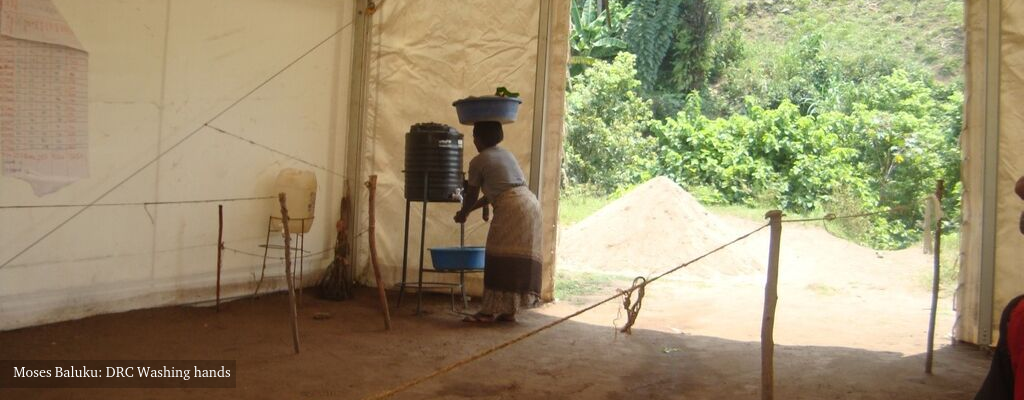The Uganda team for the Pandemic Preparedness project have also begun their fieldwork stage with some exciting developments in their work. The team have begun researching the study site and finding people to participate in the study and seeking their consent. The fieldwork area is a mountainous district and this characteristic makes its people cluster in the gentle slopes, leaving the steep and hilly areas vacant. In this regard, many households are usually concentrated together- in what can resemble an urban population arrangement.
The fieldwork area has a history of disease prevention activities. Since December 2018, there have been various Ebola response activities in this district, ranging from military and forced hand and feet washing in 0.05% and 0.5% chlorine at Ebola checkpoints to recently an installation of a thermo-recorder to detect any high temperatures among people entering Uganda. The thermo-recorder was installed by WHO, but other smaller Ebola screening points rely on non-touch thermometers. An Ebola treatment unit at a local hospital was strategically constructed near a border point. There have been some tensions, precisely because this is a border area, with blame for disease being put on Congolese people, creating tension between the two different nationalities.

The Research Officers will explore these tensions and ask them to participate in the ethnographic study over a period of 9 months. The next step is to purposively select only a few people to gain their life histories which will continue into an ethnographic study. Some interesting findings have emerged, including developing an understanding of relationships in the fieldwork area, and mapping whom community members people turn to for help in times of threat and misfortune.
The Research Officers reported some challenges in the field which included failure to find the people at home because most people cultivate their gardens in the DRC. However some interesting stories have begun to emerge about how people deal with, anticipate and prepare for misfortune and threats. For example, one story about an issue with the Ebola prevention activities begins at an Ebola check point where there are many political, social and economic issues at play including disputes over using villagers’ land for Ebola prevention purposes creating tensions between the Ebola team and the community.

The team will continue to collect life histories and stories about how people deal with, anticipate and prepare for misfortune and threats and also spend time learning the history of the fieldwork site and region before moving on to the next steps in the research project.